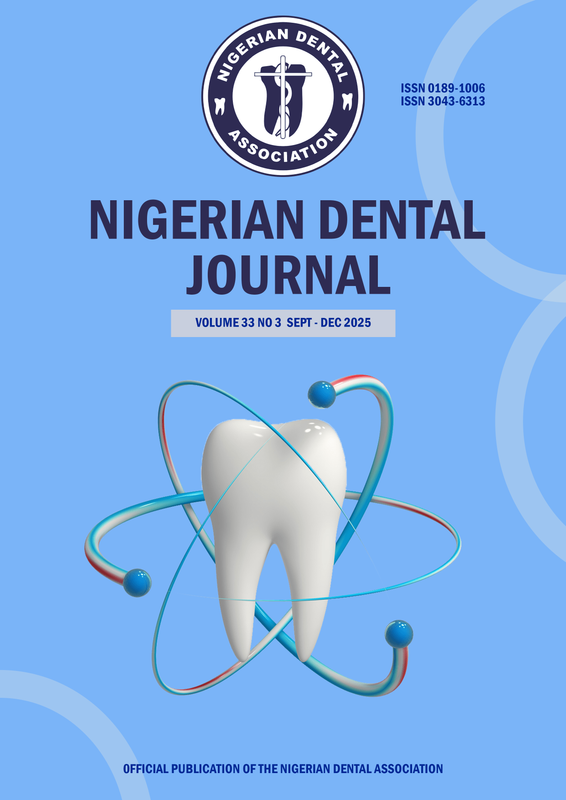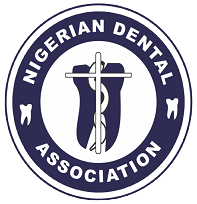Oral self-care practices and attendance pattern at a secondary care facility in Lagos State
DOI:
https://doi.org/10.61172/ndj.v24i2.13Keywords:
Oral Self Care Practices, Attendance pattern, Self MedicationAbstract
Introduction: Oral diseases such as dental caries, periodontitis, oropharyngeal cancers, and maxillofacial trauma are public health problems in both developed and developing countries. In spite of advances in dentistry over the last few decades, a large part of the population put off seeking dental care until they experience significant pain and discomfort. The aim of this study was to determine the self-care behaviours of patients before presenting in the dental clinic the pattern of dental care utilisation and its association with their socio-demographic characteristics.
Method: This cross-sectional study was conducted at the Ajeromi General Hospital, Lagos state, Nigeria. A total of 212 questionnaires was administered on respondents who met the set inclusion criteria. Information obtained included socio-demographic data, current oral health problems, oral self-care practices in the previous year and the reasons for avoidance of dental treatment.
Result: Most of the study participants (58.5%) had never visited the dentist before and the majority of them (72.2%) were involved in self-care practices. The major reasons given by the subjects for not attending dental clinics regularly were the fear of dentists or dental treatment (34.9%), high cost of treatment (34.9%), difficulty in accessing a dental clinic (17.0%) and tolerable pain (7.5%). The age, marital status, educational level, alcohol intake and tobacco use were factors that were significantly associated with delayed visit to dentist in this study. Respondents that were <30 years old, single, with primary or secondary level education and those that smoke and consume alcohol were less likely to visit the dentist.
Conclusion: There is an urgent need to empower dental patients to overcome the barriers that are responsible for their avoidance of dental clinics and their recourse to self-care practices.
Downloads
Downloads
Published
Issue
Section
License
Copyright (c) 2023 Nigerian Dental Journal

This work is licensed under a Creative Commons Attribution 4.0 International License.
Open Access Statement
- We became fully Open Access since January 2023.
- Our new and archived materials are available free of charge on open basis and under a Creative Commons license as stated below.
Copyright statement
Copyright © 1999 The authors. This work, Nigerian Dental Journal by Nigerian Dental Association is licensed under Creative Commons Attribution 4.0 International License.

